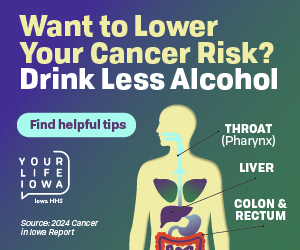08/04/22
8/4/2022U.S. Senate Majority Leader Charles Schumer (D-New York) and Senator Joe Manchin (D-West Virginia) on Wednesday of last week announced they had reached agreement on a comprehensive economic policy bill that, if adopted, would be the most consequential national legislation in recent years. It was a stunning announcement.
Whether congressional Democrats can hold together, and whether all the other stars will align, remains unknown at the start of this week.
The surprise announcement, coming after Manchin had rejected iteration after iteration of President Biden’s initial multi-trillion-dollar Build Back Better Act, focused the attention of congressional Democrats and Republicans alike. It reminded everyone that Manchin is indeed a Democrat, despite his usual alignment with Republicans to hamstring what his own party, and President Biden, had hoped to accomplish by taking control of the House, the Senate, and the White House in 2021.
Republicans struggle desperately to find plausible reasons to oppose the proposal while retaining the support of their constituents. They’re having a tough time. Here’s why:
—The bill promises expanded federal health care subsidies, prescription drug cost reduction, and vaccine cost coverage ($100 billion).
—It provides tax credits, grants, and loans for clean manufacturing, clean electricity, climate control, clean energy technology, clean agriculture, and clean vehicle manufacturing ($385 billion).
So how does the bill propose to fund those benefits?
—By repealing the Trump-era rebate rule, thereby requiring drug companies to pay a rebate if they increase prices faster than the rate of inflation; capping seniors’ Medicare drug costs at $2,000 per year; and allowing Medicare to negotiate certain drug prices (total of $320 billion of new income).
—By initiating a 15 percent minimum tax on corporate profits of more than $1 billion per year ($315 billion of new income).
—By investing $80 billion in the Internal Revenue Service to increase federal revenue by ferreting out taxes that are owed but now go unpaid ($124 billion of new income).
Tax hikes will not apply to anyone earning less than $400,000 a year.
All these numbers estimate the effects of the bill over 10 years. Together with other smaller investments and cost savings, the bill would generate more than $300 billion above what it would spend. So what will be done with that $300 billion?
It will be used to reduce the national debt, the first time that will have happened in 25 years. Republicans may now have a hard time recognizing that as a goal, but they used to advocate it and trashed Democrats for not doing so.
There are trade-offs designed to secure Manchin’s support. For instance, in return for Manchin’s agreeing to the clean energy and climate protection provisions, the bill provides for offshore energy drilling, something Manchin demanded.
The bill’s not yet set in stone. Schumer says language will be added to reduce patients’ cost of insulin, a diabetes drug whose price has shot up in recent months.
And the bill must jump through several other hoops. First, the proposal would accomplish only a shadow of what Biden and progressive congressional Democrats originally proposed. Some House progressives may vote against it for that reason.
In addition, Senator Kyrsten Sinema (D-Arizona), like Manchin also a Senate Democratic moderate, as of this past weekend hadn’t indicated whether she will vote for the bill or not.
And then there’s the COVID effect. In the House, members may vote absentee or by proxy. But the Senate requires the physical presence of any Senator who wishes to vote, and that may be tough. Senator Dick Durbin (D-Illinois) contracted COVID last week, and there may be others in that situation come voting time.
But Schumer wants to get the bill on the calendar this week, before the congressional August recess. Because he intends to use the “reconciliation” process which will require only a simple majority for passage, thereby avoiding the Senate filibuster snare, members will be able to offer a deluge of amendments. All-nighters may be in the offing. All 50 Senate Democrats will have to vote “yes,” since all 50 Republicans so far have indicated they will vote “no.” That would leave it up to Vice President Kamala Harris to cast the deciding “yes” vote.
By the time this newspaper is published on Thursday of this week, much more will probably be known about the bill’s chances, so this column is just a prelude to the main event.
But if it is actually adopted and sent to President Biden, Democrats can claim a major legislative victory, replete with a number of popular achievements: lower drug costs, serious steps to fight climate damage, a minimum tax on the huge corporations that now use loopholes to avoid paying any income tax at all, federal debt reduction, a beefed-up IRS to go after tax scofflaws, and extensions of federal health care subsidies for millions of people.
That should provide plenty of ammunition for Democratic candidates after their Republican opponents vote “no”. Senate Minority Leader Mitch McConnell calls the bill “nonsense.” It’s up to him and his GOP colleagues to explain to their constituents why the bill isn’t a good thing for them. ♦

















